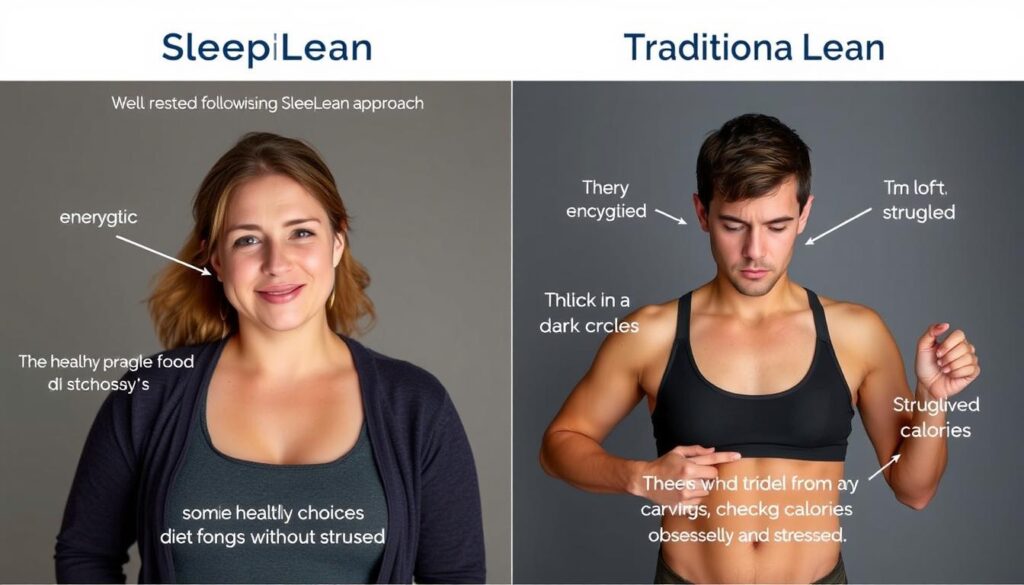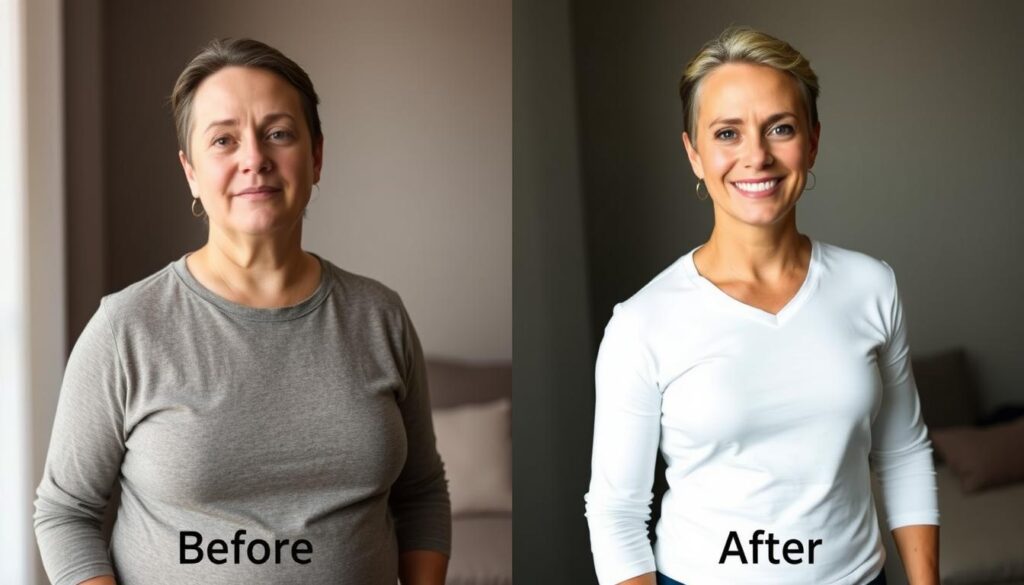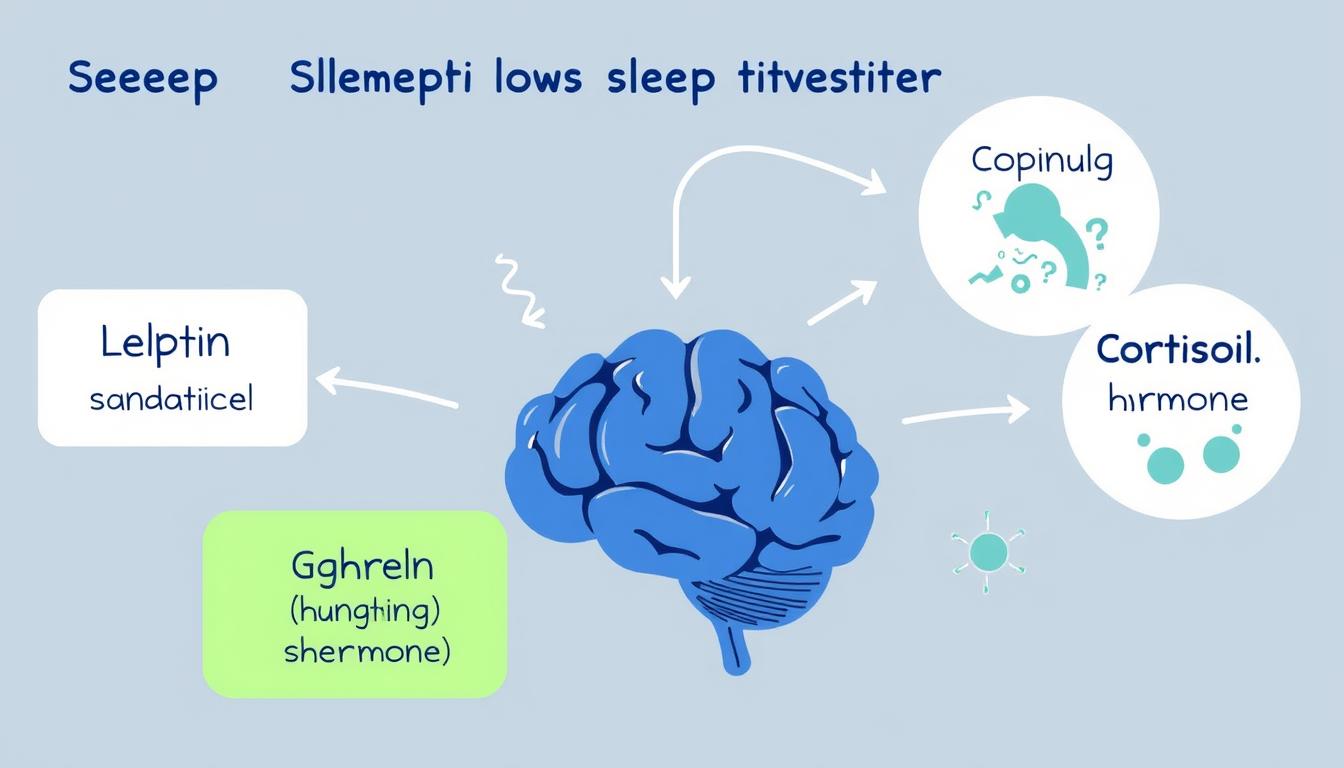If you’ve been struggling with weight loss despite your best efforts with diet and exercise, the missing piece might be right under your pillow. The SleepLean approach represents a paradigm shift in how we think about weight management—focusing on optimizing sleep quality to enhance metabolic function and support natural fat burning. Unlike traditional weight loss methods that often rely on restriction and willpower, SleepLean harnesses your body’s innate circadian rhythm to create an environment where weight loss becomes more efficient and sustainable.
The connection between sleep and weight is more profound than most people realize. Poor sleep doesn’t just leave you tired; it actively works against your weight loss goals by disrupting hormones, increasing cravings, and slowing metabolism. By understanding and implementing the SleepLean principles, you can transform your nighttime routine into a powerful ally for your weight management journey.
The Science Behind Sleep and Weight Management
The SleepLean concept is built on solid scientific research that has uncovered the intricate relationship between sleep quality and metabolic health. When we examine the evidence, it becomes clear that sleep isn’t just a passive state of rest—it’s an active period of metabolic recovery and hormonal regulation that directly impacts your body’s ability to manage weight.
How Poor Sleep Sabotages Weight Loss
Multiple studies have demonstrated that insufficient sleep creates a perfect storm of hormonal changes that promote weight gain. Research published in the Journal of Clinical Endocrinology & Metabolism found that just one night of poor sleep can increase insulin resistance by up to 33%, making your body more likely to store calories as fat rather than burn them for energy.
The SleepLean approach addresses these disruptions by focusing on optimizing sleep architecture—the various stages of sleep that each play unique roles in metabolic health. Deep sleep, in particular, is when your body releases growth hormone, which helps maintain muscle mass and supports fat metabolism.
The Cortisol Connection
One of the most significant ways sleep affects weight is through cortisol regulation. This stress hormone rises when sleep is inadequate, leading to increased belly fat storage and enhanced cravings for high-calorie foods. A landmark study from the University of Chicago found that sleep-deprived participants chose snacks with 50% more calories than when they were well-rested.
The SleepLean methodology works to normalize cortisol patterns through consistent sleep schedules and stress-reduction techniques, creating an internal environment more conducive to weight loss.
Ready to Transform Your Sleep and Weight Loss Journey?
Discover how optimizing your sleep can unlock your body’s natural fat-burning potential. Our free SleepLean starter guide provides science-backed strategies to enhance your metabolic recovery overnight.
Circadian Rhythm and Metabolic Health
Your body’s internal clock—or circadian rhythm—governs countless metabolic processes. When this rhythm is disrupted through irregular sleep patterns or nighttime light exposure, it can lead to weight gain and metabolic disorders. Research from the Proceedings of the National Academy of Sciences found that circadian misalignment can reduce resting metabolic rate and impair glucose tolerance.
SleepLean principles emphasize the importance of aligning your daily habits with your natural circadian rhythm to optimize metabolic function and support weight management goals.
Practical SleepLean Strategies for Weight Loss Success

Implementing the SleepLean approach doesn’t require expensive equipment or complicated protocols. These practical, evidence-based strategies can help you optimize your sleep environment and habits to support your weight management goals.
Sleep Environment Optimization
- Temperature control: Keep your bedroom between 60-67°F (15-19°C). Research shows that cooler temperatures enhance sleep quality and can increase metabolic rate during sleep.
- Light management: Eliminate all sources of blue light at least 90 minutes before bed. Blue light suppresses melatonin production, which can disrupt your circadian rhythm and metabolic recovery.
- Noise reduction: Use white noise machines or earplugs to minimize disruptive sounds that can prevent deep sleep stages where most metabolic recovery occurs.
- Comfortable bedding: Invest in a supportive mattress and breathable bedding to prevent sleep disruptions from discomfort or overheating.
- Air quality: Ensure proper ventilation and consider using an air purifier to reduce allergens that might disturb sleep.
Pre-Bedtime Routines for Enhanced Sleep Quality

- Consistent schedule: Go to bed and wake up at the same time daily to strengthen your circadian rhythm and optimize metabolic function.
- Digital sunset: Power down electronic devices 1-2 hours before bed to prevent blue light exposure and mental stimulation.
- Relaxation practices: Incorporate meditation, gentle stretching, or deep breathing exercises to lower cortisol levels before sleep.
- Warm bath or shower: Taking a warm bath 1-2 hours before bed can help trigger your body’s natural temperature drop that signals sleep onset.
- Journaling: Write down tomorrow’s tasks or worries to prevent middle-of-the-night rumination that disrupts deep sleep.
Nutritional Recommendations for Better Sleep

- Timing matters: Finish your last substantial meal 3-4 hours before bedtime to allow for proper digestion and prevent sleep disruption.
- Tryptophan-rich foods: Include turkey, chicken, eggs, and dairy in your evening meal to support serotonin and melatonin production.
- Magnesium sources: Incorporate leafy greens, nuts, and seeds to support muscle relaxation and deeper sleep quality.
- Limit caffeine and alcohol: Avoid caffeine after noon and limit alcohol, which may help you fall asleep but disrupts REM and deep sleep stages.
- Consider sleep-promoting snacks: If hungry before bed, opt for small combinations of complex carbs and protein, like a small banana with almond butter.
- Hydration balance: Stay hydrated throughout the day but taper fluid intake in the evening to minimize nighttime bathroom trips.
Enhance Your SleepLean Results
Want personalized guidance on implementing these strategies? Join our SleepLean community for weekly tips, expert advice, and support from others on the same journey.
SleepLean vs. Traditional Diet Plans
Understanding how the SleepLean approach differs from conventional weight loss methods can help you appreciate why addressing sleep quality might be the missing link in your weight management journey.
| Aspect | SleepLean Approach | Traditional Diet Plans |
| Hormonal Balance | Optimizes leptin, ghrelin, and cortisol naturally through improved sleep quality | Often ignores hormonal factors, focusing solely on calorie restriction |
| Sustainability | Creates lasting lifestyle changes that support both sleep and weight management | Typically relies on willpower and restriction, leading to high failure rates |
| Metabolic Impact | Enhances metabolic recovery during sleep, supporting healthy fat metabolism | Can slow metabolism through excessive calorie restriction |
| Hunger Management | Naturally regulates appetite hormones, reducing cravings and emotional eating | Often increases hunger and cravings, making compliance difficult |
| Energy Levels | Improves energy through better sleep quality and hormonal balance | Can lead to fatigue and energy crashes from nutrient restriction |
| Stress Impact | Reduces cortisol and stress through improved sleep, supporting fat loss | Often increases stress and cortisol, promoting fat storage |
| Muscle Preservation | Supports growth hormone production during deep sleep, preserving lean muscle | Can lead to muscle loss alongside fat loss, slowing metabolism |

The SleepLean approach represents a fundamental shift in weight management philosophy. Rather than fighting against your body through restriction and deprivation, it works with your natural biology to create an internal environment where weight loss becomes more efficient and sustainable.
SleepLean Success Stories: Real Results Through Better Sleep
The power of the SleepLean approach is best illustrated through the experiences of those who have implemented these principles in their own lives. These stories demonstrate how prioritizing sleep quality can transform weight loss results, even when other methods have failed.

Jennifer’s Story
“After years of yo-yo dieting, I was skeptical that something as simple as sleep could make a difference. But after implementing the SleepLean strategies for just three weeks, I noticed my cravings for sugar and carbs diminished significantly. Within three months, I lost 18 pounds without changing my diet dramatically. The biggest difference was my energy levels—I no longer needed afternoon caffeine to get through the day.”
Key SleepLean strategies: Temperature optimization, consistent sleep schedule, digital sunset routine

Michael’s Story
“As a busy executive, I always prioritized work over sleep. Despite regular exercise and watching my diet, I couldn’t lose the last 15 pounds of belly fat. After learning about the SleepLean approach, I committed to 7-8 hours of quality sleep each night and created a proper wind-down routine. Within two months, my stubborn belly fat began to disappear, and my workout performance improved dramatically.”
Key SleepLean strategies: Stress-reduction techniques, blackout curtains, magnesium supplementation

Sarah’s Story
“After menopause, my weight seemed impossible to control despite a strict diet. My doctor suggested I look into sleep quality when my lab work showed elevated cortisol. Using the SleepLean principles, I focused on creating a sleep sanctuary and consistent bedtime rituals. Not only did I lose 22 pounds over six months, but my latest bloodwork showed improved insulin sensitivity and lower inflammation markers.”
Key SleepLean strategies: Evening relaxation practices, tryptophan-rich dinners, consistent wake time

The most surprising aspect of the SleepLean approach is how effortless weight management becomes when your hormones are properly balanced through quality sleep. Many of our success stories report that they’re eating the same foods but processing them differently due to improved metabolic function.
— Dr. Elena Martinez, Sleep and Metabolism Researcher
Start Your SleepLean Success Story
Join thousands who have transformed their weight loss journey through better sleep. Our 30-day SleepLean challenge provides daily guidance, tracking tools, and expert support.
Implementing SleepLean: Your 7-Day Starter Plan
Ready to experience the benefits of the SleepLean approach? This 7-day starter plan will help you begin implementing key strategies to optimize your sleep quality and support your weight management goals.
- Day 1: Assess Your Sleep Environment
Take inventory of your bedroom and identify potential sleep disruptors. Remove electronics, install blackout curtains if needed, and consider the temperature of your room. Set a goal to create a sleep sanctuary that promotes deep, restorative sleep. - Day 2: Establish a Digital Sunset
Begin powering down electronic devices 90 minutes before your target bedtime. Replace screen time with relaxing activities like reading, gentle stretching, or conversation. Notice how this affects your ability to fall asleep. - Day 3: Optimize Meal Timing
Finish your last substantial meal 3-4 hours before bedtime. If hungry later, choose a small sleep-promoting snack like a banana with almond butter or a small serving of turkey and avocado. - Day 4: Focus on Temperature
Experiment with lowering your bedroom temperature to between 60-67°F (15-19°C). Consider using breathable bedding and moisture-wicking sleepwear to prevent overheating during the night. - Day 5: Incorporate Relaxation Techniques
Add a 10-minute relaxation practice to your bedtime routine. This could be meditation, deep breathing, gentle yoga, or progressive muscle relaxation. These practices help lower cortisol and prepare your body for deep sleep. - Day 6: Commit to Consistency
Set a consistent sleep and wake schedule, even on weekends. This strengthens your circadian rhythm and optimizes hormonal patterns that support weight management. - Day 7: Review and Adjust
Reflect on the changes you’ve made and note any improvements in sleep quality, energy levels, or cravings. Identify which strategies were most effective for you and commit to continuing them while adding new elements of the SleepLean approach.
Pro Tip: Keep a sleep journal during your 7-day starter plan to track improvements and identify patterns. Note your energy levels, hunger cues, and mood upon waking to see how sleep quality affects these factors.
Frequently Asked Questions About SleepLean
How quickly can I expect to see weight loss results with the SleepLean approach?
Most people begin noticing changes in appetite, cravings, and energy levels within 7-14 days of implementing SleepLean strategies. Measurable weight loss typically begins after 2-4 weeks of consistent practice. Remember that SleepLean focuses on sustainable, healthy weight management rather than rapid weight loss, which often leads to rebound weight gain.
Do I still need to watch my diet and exercise while following SleepLean?
SleepLean works best as part of a comprehensive approach to health. While optimizing sleep can dramatically improve your body’s natural ability to manage weight, nutrition and physical activity remain important components. The good news is that quality sleep often leads to better food choices and more energy for exercise naturally, making these aspects easier to maintain.
I’m a shift worker. Can I still benefit from the SleepLean approach?
Yes, though shift workers face unique challenges. Focus on maximizing sleep quality during your available sleep windows by creating a dark, cool sleep environment regardless of the time of day. Consistency within your schedule constraints, strategic light exposure, and careful attention to meal timing can help mitigate some of the metabolic challenges of shift work.
Is SleepLean appropriate for those with diagnosed sleep disorders?
If you have a diagnosed sleep disorder like sleep apnea, restless leg syndrome, or insomnia, it’s essential to work with healthcare providers to address these conditions directly. The SleepLean approach can complement medical treatment but shouldn’t replace it. Many people find that combining proper medical care with SleepLean principles enhances their results.
How does SleepLean differ from taking sleep supplements?
SleepLean is a comprehensive approach to optimizing sleep for metabolic health, not just a supplement regimen. While certain nutrients and compounds can support sleep quality, SleepLean emphasizes behavioral and environmental factors that create sustainable improvements in sleep architecture and circadian rhythm alignment.

Expert Insights: The Future of Sleep-Based Weight Management

As research continues to unveil the complex relationship between sleep and metabolism, the SleepLean approach is gaining recognition among health professionals. We spoke with leading experts about the future of sleep-based weight management and why it represents a promising frontier in health optimization.
The traditional weight loss paradigm has failed millions of people because it ignores the fundamental role of sleep in metabolic regulation. What we’re seeing with approaches like SleepLean is a return to working with the body’s natural rhythms rather than against them. The research is clear: optimizing sleep architecture can transform metabolic health in ways that diet alone simply cannot achieve.
— Dr. James Chen, Neurologist and Sleep Medicine Specialist
Emerging research continues to strengthen the case for sleep-focused approaches to weight management. A 2023 study published in the Journal of Clinical Sleep Medicine found that participants who improved sleep quality without changing their diet experienced significant improvements in insulin sensitivity and reductions in visceral fat compared to a control group.
What makes the SleepLean approach so effective is its focus on the quality of sleep, not just duration. We now understand that specific sleep stages, particularly deep sleep and REM sleep, play crucial roles in hormonal regulation and metabolic recovery. By optimizing these stages through environmental and behavioral modifications, we can enhance the body’s natural ability to maintain a healthy weight.
— Dr. Maria Rodriguez, Endocrinologist and Metabolism Researcher
As wearable technology advances, more people are gaining insights into their sleep patterns and how they correlate with weight management challenges. This data-driven approach is helping to personalize SleepLean strategies for individual needs and circumstances.
Conclusion: Embrace SleepLean for Sustainable Weight Management
The journey to effective weight management doesn’t have to be defined by restriction, deprivation, and willpower. The SleepLean approach offers a refreshing alternative—working with your body’s natural rhythms to create an internal environment where weight management becomes more efficient and sustainable.
By prioritizing sleep quality and implementing the strategies outlined in this guide, you can tap into your body’s innate wisdom and metabolic potential. The beauty of the SleepLean approach lies in its simplicity and sustainability. Rather than fighting against your biology, you’re aligning with it, creating lasting changes that support both better sleep and healthier weight.
Remember that small, consistent improvements in sleep quality can yield significant results over time. Start with the strategies that seem most manageable for your lifestyle, and gradually incorporate more elements of the SleepLean approach as you experience the benefits.

Your body has an incredible capacity to heal, balance, and thrive when given the right conditions. Quality sleep is not a luxury—it’s a fundamental pillar of health that affects every aspect of your metabolism and weight management system. By embracing the SleepLean approach, you’re not just investing in better sleep; you’re transforming your relationship with your body and creating the foundation for lasting health and wellbeing.
Ready to Transform Your Sleep and Weight Loss Journey?
Take the first step toward better sleep and effortless weight management with our comprehensive SleepLean guide. Join thousands who have discovered the power of optimized sleep for metabolic health.


